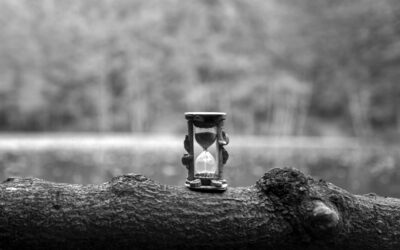In this season of quarantine, one of my greatest joys has been going on evening walks with my husband. We stroll around our neighborhood, catching up on the day’s events, meeting neighbors, and seeing all of the changes that happened throughout the day. Riveting examples include: “So-and-so got a new wreath!”; or “That house is up for sale!”; and a current favorite is “How is their grass sogreen!?” Our quarantine walks were the simplest activity, but they were truly the highlight of each day.
As our schedules have begun to pick back up over the past weeks, we have tried to maintain our nightly walks. They are becoming less frequent, and they are having to happen later and later in the day.
Some days, the sun is completely down before we make it out the door. There are several streetlights in our neighborhood, but not many. During these nighttime walks, my husband has learned how terrible my eyesight is at night. I have known this for a while, mind you – I wear some pretty stellar night driving glasses to help me drive in the dark.
On these nighttime walks, my husband has realized how many tricks the shadows play on my eyes. He is amazed that I can’t tell when I am about to step on a frog, a rock, dog poop, or a simple shadow. (I have unfortunately done all of the above. They all look the same to me in the dark.)
Shadows can be tricky. They can shape-shift and morph. If they are big enough, they can make you feel as if it is dark everywhere, not just where you are. Shadows on a nighttime walk with astigmatism are hard enough. Shadow seasons in our lives can be incredibly difficult.
Psalm 23 includes a very well-known verse: “Even though I walk through the valley of the shadow of death, I will fear no evil, for you are with me; your rod and your staff, they comfort me” (NIV).
The shadow of the valley of death is REAL. Many, if not all of us, have journeyed through those kinds of shadows. Those shadows can reek of death and loss. They can tempt us to fear, even though we know – as Psalm 23 continues – that God is with us and will comfort us.
But shadows aren’t always bad.
Sometimes, they are God’s provision.
At our house, we have a back porch that I love. It’s where I have my quiet times, where I meet with God, where I write these messages. At certain times of day, the shadows on this porch are perfect. They provide shade to keep me cool, allow me to see my computer screen outside, and prevent the sun from burning my very pale skin. Shadows can be enjoyable and useful. This idea is not new to us. This idea is biblical, too.
Jonah, the Old Testament prophet that God sent to save Nineveh but instead ran away and got swallowed by a fish, gets very particular about a shadow.
Once Jonah finally goes where he was supposed to and delivers God’s message to the Ninevites, he is upset about it. He didn’t want to go give his enemies a message from God because he KNEW God would be gracious and compassionate, slow to anger and abounding in love regardless of what Jonah did (Jonah 4:2). Jonah feels like he wasted his time and emotional capacity.
In his pouting, Jonah goes outside the city and makes himself a shelter to sit in the shade. The Lord sees this and causes a plant to grow over Jonah, to give him even more shade and “ease his discomfort” (Jonah 4:6). Jonah is thrilled about the plant. But the next day, God sent worms and scorching sun that made the plant – and Jonah’s will – wilt. The loss of this shadow made Jonah angrily tell God that he wants to die. This ends up being a powerful lesson from God to Jonah – a lesson that many great sermons have been preached on.
But notice how useful, important, and holy that shadow was for Jonah?? The shadow of the plant was Jonah’s protection from his own rebellious behavior.
A shadow can sometimes be God’s very presence and protection.
Jonah tried to build his own shelter to protect himself from his mistakes. It made things worse. Even the very fish that swallowed him was a holier shelter than the one he built himself outside of Nineveh. God supplemented Jonah’s self-made shelter with a plant. The plant did more to provide a safe, shadowy space for Jonah than his own shelter did.
I can’t help but notice that the shelters that God provides for Jonah come from God’s natural, divine creation rather than some man-made structure. If you look back on your own journey with God, I bet you can notice a similar pattern. Shelters that you have tried to protect yourself with often eventually come crashing down. God’s shelter, however, is eternal.
“Whoever dwells in the shelter of the Most High will rest in the shadow of the Almighty. I will say of the Lord, ‘He is my refuge and my fortress, my God, in whom I trust.’” -Psalms 91:1-2
This psalm says those who dwell in God’s shelter will rest in His shadow. The psalmist says that God is his refuge and fortress, in whom he trusts.
It can be hard to see in shadows. As I said at the beginning, I am living proof of this. In shadow seasons of life, it is hard to know what is happening or what is coming down the road. Shadows can be confusing and lonely.
But maybe that’s ok. Because sometimes, perhaps God brings us to seasons of shadows for us to rest in His shelter, under the shadow of His wings.
Too much light isn’t always a good thing. The scorching sun on Jonah wiped out his will to live. I also think of Paul on the road to Damascus – God’s light shone so intensely on him that it blinded him. There’s a pop culture saying, “My future’s so bright, I need shades.” Well, that’s not wrong! I think if we were to truly see all that God is doing in our lives and around us at all times, it would literally blind us. It is kindof God to shine just enough light to show us what we need, when we need it.
“On my bed I remember you; I think of you through the watches of the night. Because you are my help, I sing in the shadow of your wings. I cling to you; your right hand upholds me.” -Psalm 63:6-8
The psalmist sings in the shadow of God’s wings, through the night.
The night can be long, but it’s also necessary. At night, we rest, we recharge, we still our minds. And for the psalmist, it is there in God’s nighttime shadow that the psalmist is close enough to cling to God and be upheld by God’s hand. It is there, in the darkness, that the psalmist can sing and rejoice.
Being in God’s shadow means we are close enough to Him to cling to Him, to be held by Him. What more could you want?
Sometimes drawing near to God requires being in a shadow place: the shadow of His wings, close enough to grab God’s hand and let Him uphold you. But it doesn’t always feel that way. We can sometimes mistake the unseen in our own sight for our being unseen in God’s sight.
That is not the case. This is never the case. Psalm 139:1-2 tells us so: “If I say, ‘Surely the darkness will hide me and the light become night around me,’ even the darkness will not be dark to You; the night will shine like the day, for darkness is as light to You.”
Being able to rest in God’s shadow is acknowledging that you trust Him more than you trust yourself. Being able to rest in His presence, even when you can’t see past that very moment, takes faith. But by practicing faith in more and more shadow seasons, you see that it is truly the best and safest thing you can do.
Hosea 14:7 says, “People will dwell again in God’s shade; they will flourish like the grain, they will blossom like the vine.”When we dwell in God’s shade, that’s when and where we flourish. God protects us from the scorching heat, we cling to Him, and we blossom stronger and better than the vine that protected Jonah.
If you are in a season of shadows right now, ask yourself what the shadows are from. Like Jonah’s first shelter, are they from your own rebellious behavior? Or maybe, just maybe, are they a protection, a gift from your Father, for a specific season and reason?
Again, Hosea says: “People will dwell again in God’s shade; they will flourish like the grain, they will blossom like the vine.” I pray that you will find your shelter in the shadow of your Most High God. And that there, in His shadow, you might blossom.
Today’s writer is Elizabeth Rogers. Elizabeth is the Connections Pastor at Classic City Church in Athens, GA. Passionate about the Spanish culture and language, Elizabeth served for three years with an international missions organization in Spain. She loves adventuring with her husband, group fitness classes, and morning quiet times outside with a good cup (or two or three) of coffee. Elizabeth currently resides in Athens, GA with her handsome goof of a husband, Josh. You can connect with Elizabeth via email at elizabeth@classiccity.org.



